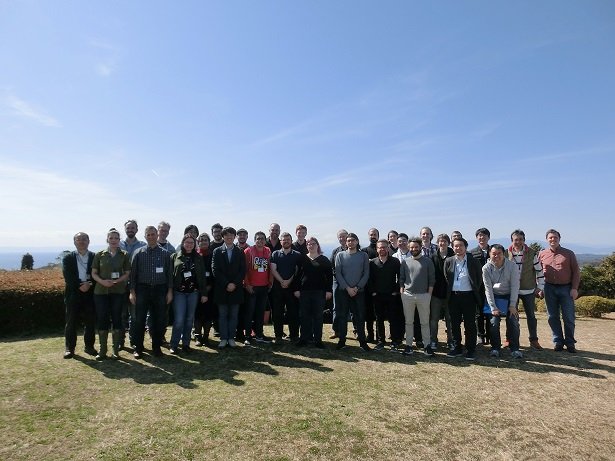
Artificial General Intelligence in Games: IDG at the NII Shonan Meeting in Japan


The Institute of Digital Games had a strong presence at the NII Shonan Meeting No.130: Artificial General Intelligence in Games: Where Play Meets Design and User Experience which took place in Kanagawa, Japan during March 18-21, 2019. NII Shonan Meetings, following the well-known Dagstuhl Seminars, aim to internationally promote informatics its research, by providing another world’s premier venue for world-class scientists, promising young researchers, and practitioners to come together in Asia to exchange their knowledge, discuss their research findings, and explore a cutting-edge informatics topics.
Artificial Intelligence in Games
This NII Shonan meeting was co-organized by IDG director Georgios N. Yannakakis, and aims to discuss how we can take the general game-playing paradigm and expand it to cater for all core AI tasks within a game design process. Its goal was to discuss how we can take the general game-playing paradigm and expand it to cater for all core artifcial intelligence tasks within a game design process. Due to their extensive work in the field of artificial intelligence and games, three mebers of the IDG were among the attendees: Georgios N. Yannakakis, Antonios Liapis, and Daniele Gravina. During the four days of the NII Shonan meeting, a broad range of topics were discussed and the attending IDG members had the opportunity to share their insights and receive valuable feedback from the international community of experts in this promising domain of general artificial intelligence for games.
Applications of Artificial Intelligence in Games
A few key areas that were covered at the meeting were:
General Game Playing: AI playing games is an area of much activity and at the moment it would seem that search and learning algorithms are outperforming other specific solutions and clever hacks. DeepMind's thrashing of professional Starcraft players is a good example of the progress in AI playing games. The development of non-player characters that can adapt to any situation or game is a vision that was also explored.
General Player Models: Human communication often extends beyond words and we as humans are quite capable of interpretting these, recognizing human behaviour is a critical task for human communication that AI hopes to take on. The potential for AI to detect cognitive reaction and expressions across context and build models of human behaviour was discussed at this meeting. Player modeling is a core part of the research done at the Institute of Digital Games as well having recently worked on a study in collaboration with Ubisoft.
General Game Generation: Prodecural content generation (PCG) is one of the more popular applications of AI in games. Having the algorithm substitute the human designer. The generative processes were discussed at the meeting. The Institute of Digital Games has worked on a number of interesting procedural content generation projects including PhD student work on predicting level balance with neural networks and Dr Liapis's work on using Open Source data to create DATA Agent.
Artificial Intelligence Future beyond Games
Beyond the application of artificial intelligence in games, the meeting also discussed how the research could be relevant beyond the scope of games. Games provide a 'testbed' of sorts for using AI as they interweave problem solving, art, and engineering in a creative domain. Approaching AI in this light broadens the applicability and capacity of AI algorithms and this meeting in Japan aims to continue this line of research, bringing various experts in AI related to games, including of course, our delegation from the Institute of Digital Games to discuss how their research can influence beyond the scope of games.
Don't miss our events and research updates. Subscribe to our Newsletter below!

